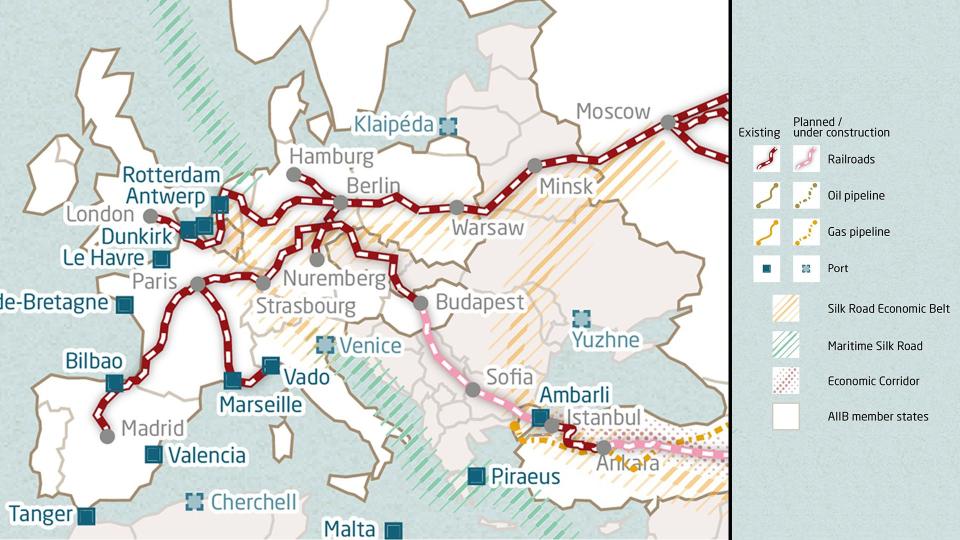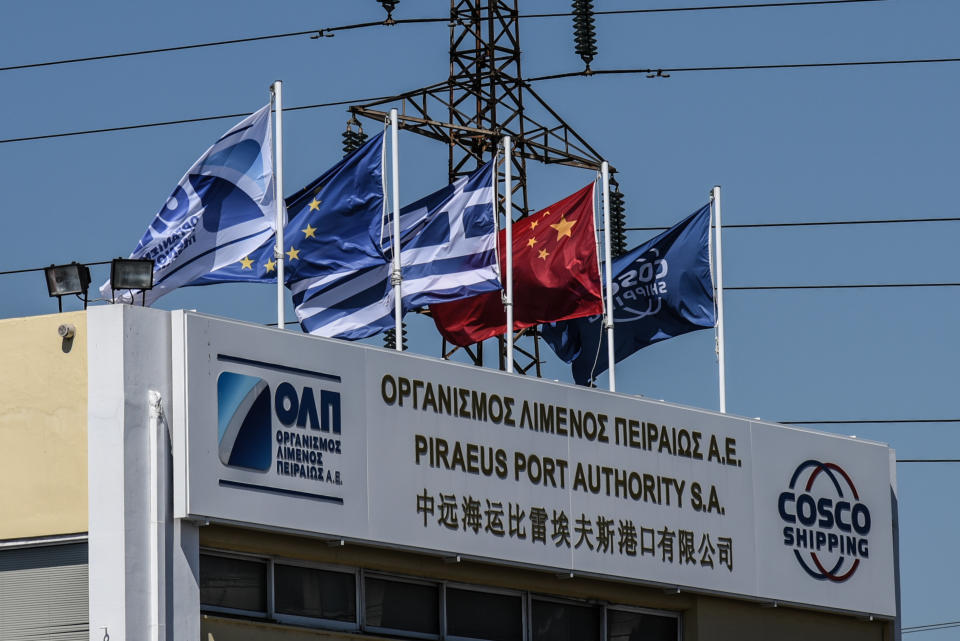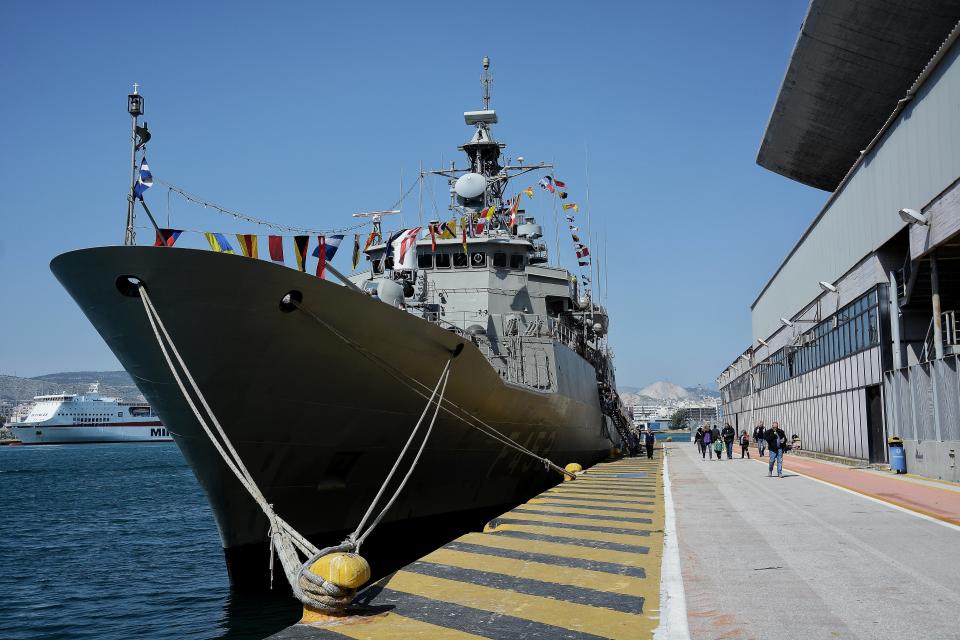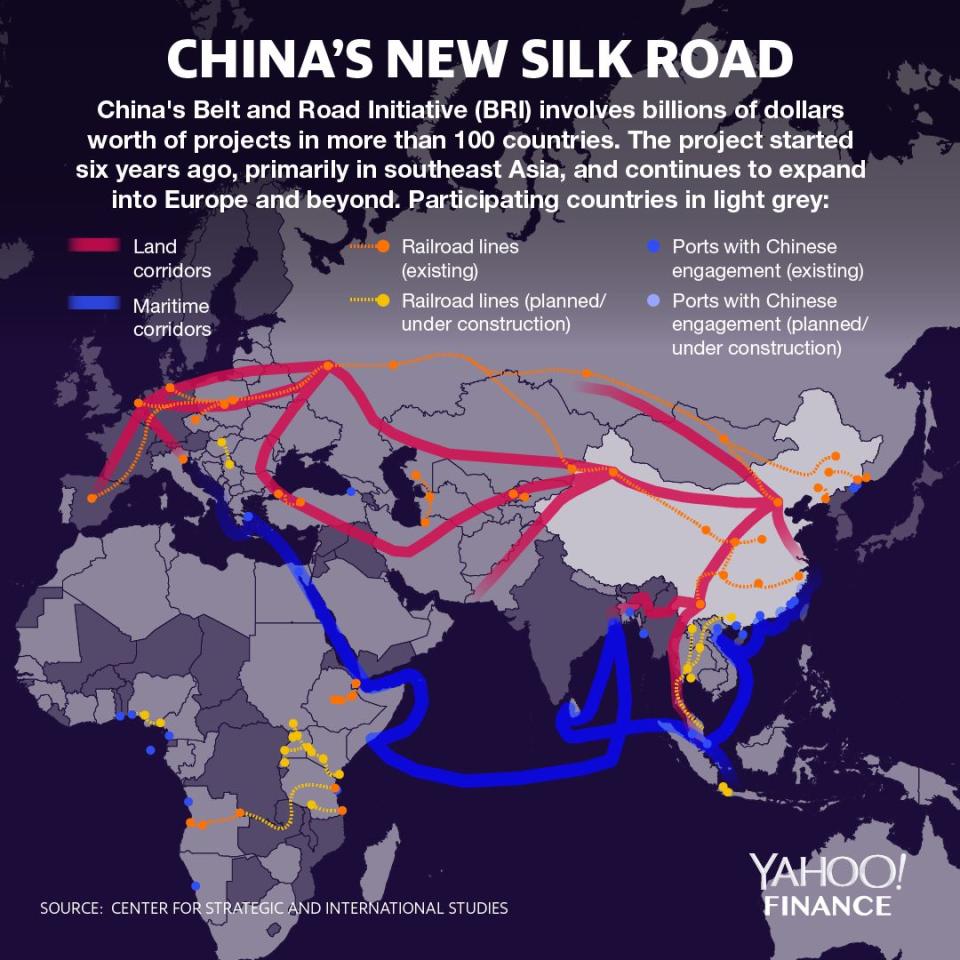China’s new Silk Road endgame looks like Greece’s Port of Piraeus
A Greek port that has served the city of Athens since ancient times is China’s poster child for the success of its 21st century Belt and Road Initiative (BRI).
The BRI, also known as the New Silk Road, involves more than a trillion dollars worth of Chinese infrastructure investments across Asia, Africa, and Europe — with at least $64 billion more to come.
Nearly three years after acquiring a 51% stake in the Port of Piraeus, China can now confidently point to Greece’s largest port as a case study that demonstrates its full capability of turning a sinking ship around.
During the first year of Chinese operating the port, the throughput grew by 10.9%. according to a report by Lloyd’s List. And of the top 100 ports in the world, Piraeus was ranked 93rd in 2010. In 2018, it was 37th.

“This is something that China could quite persuasively say, is a success case, because the throughput has gone up quite dramatically since Chinese built the terminal there, and then also took over operations,” Jonathan Hillman, senior fellow at the D.C.-based think tank CSIS told Yahoo Finance. “The numbers and the port is just done very well, rising regionally, as now one of the top ports in the Mediterranean.”
Last year, in particular, was spectacular. After two years of Chinese operation, the port posted a 147% improvement year-over-year, bringing in EUR 27.9 million in profits.
“2018 was the most successful year in terms of profitability,” Authority Captain Fu Chengqiu, the Port of Piraeus CEO, said in a press release. “The successful financial management also brings additional revenue to the Greek State due to increased concession fees, dividends, insurance contributions, etc.”

‘Encouraging results of the cooperation between Greece and China’
After state-owned China Ocean Shipping Company (COSCO) took a 51% stake in the Port of Piraeus’ operator in 2016 for approximately $312.51 million (EUR 280.5 million) — with the likelihood of that share increasing to 67% — China set out to make it a key transhipment hub for trade between Asia and Europe, envisioning a southern gate to Europe.
“COSCO SHIPPING is a long-term and responsible investor, which strategically invests in the port of Piraeus aiming at further highlighting of Piraeus Port natural advantages and strengthening its position in the port industry,” Piraeus Port Authority spokesperson Nektarios Demenopoulos told Yahoo Finance.
He added: “We strongly believe that the development of Piraeus port not only meets the global strategic plan of COSCO SHIPPING, but it will also bring long-lasting benefits to Piraeus port employees, shareholders, local community and finally to the Greek economy.”
The project’s success has been heralded as a blockbuster in Chinese media.
“The development of Piraeus in recent years is the encouraging results of the cooperation between Greece and China within the framework of the Belt and Road Initiative,” Xinhua reported in late January.

Debt-trap diplomacy argument ‘overlooks the agency of the recipient country’
China’s turnaround at Piraeus is important to note because it hasn’t seen similar success in another notable instance in Sri Lanka — which is regarded by many critics as the foremost example in Chinese ‘debt-trap diplomacy.’
The basic premise of that project — Sri Lanka had borrowed beyond its means and then succumbed to giving up its prized port to repay its debts — led critics to argue China had used debt to trap countries into bending to their will.
The project had been a PR nightmare for China, who is being accused of ensnaring a capital-hungry country, which is a stark difference from its success in Piraeus.
The nuance is worth noting, said Hillman, adding that at the end of the day, getting “trapped” wasn’t a one-way street.
“I think the question is, were they trying to take control of the port in the first place, or whether it took advantage of a situation when things did not go well. I find the latter more believable,” said Hillman. “When US officials sometimes use the debt trap diplomacy narrative, they turn this into a story that basically just China is taking advantage of some small country. And I think when it gets told that way, that overlooks the agency of the recipient country.”

Hillman ascribed blame to Sri Lankan politicians, who unlike the Greeks, found it hard to reign in their self-interest.
“If you look at the Sri Lankan case, it's quite clear that that port was pursued in the first place, because there was basically in the political home base of the president at the time in Sri Lanka,” explained Hillman. “And the administration, at the time, was pretty negligent about controlling the remote monitoring risks around that project.”
He added that the Sri Lankan administration “spent about $800,000 on a celebration opening the port a year, a year before it was actually done. They wanted to open it on the President's birthday.”
Aarthi is a writer for Yahoo Finance. Follow her on Twitter @aarthiswami.
Read more:
EU on the New Silk Road: China is both a 'partner' and a 'systemic rival'
The new Silk Road is China's 'second pillar of legitimacy' — and Europe is starting to buy in
Economist says U.S. 'is trying to have its cake and eat it too' in trade war
Follow Yahoo Finance on Twitter, Facebook, Instagram, Flipboard, LinkedIn, YouTube, and reddit.

 Yahoo Finance
Yahoo Finance 
